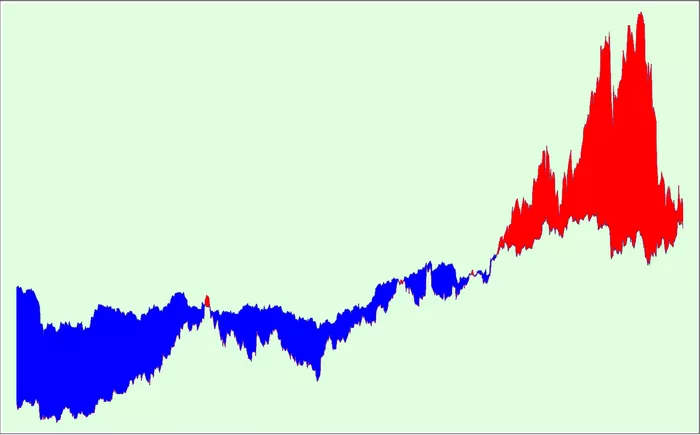In early 2021, the financial world was taken by storm when a group of retail investors on Reddit, particularly from the subreddit r/WallStreetBets, orchestrated a short squeeze on GameStop (GME) stock. This unprecedented event drew attention to the practices of short-selling and brought to light several hedge funds that had bet against GameStop. This article will explore the hedge funds involved in shorting GameStop, the mechanics behind their strategies, and the aftermath of the short squeeze.
Understanding Short Selling
What Is Short Selling?
Short selling is an investment strategy where an investor borrows shares of a stock they believe will decrease in value, sells the shares at the current market price, and aims to repurchase them later at a lower price. The difference between the selling price and the repurchase price is the profit. This strategy carries significant risks because if the stock price increases instead of decreasing, the short seller faces potentially unlimited losses.
The Role of Hedge Funds in Short Selling
Hedge funds often engage in short selling as part of their investment strategies. They aim to generate returns irrespective of market conditions by taking both long and short positions. Hedge funds are known for their aggressive investment tactics and sophisticated strategies, which include leveraging, derivatives, and short selling.
See Also: 7 Best Mid-Cap Mutual Funds
Hedge Funds Involved in Shorting GameStop
Melvin Capital
Background
Melvin Capital, founded by Gabriel Plotkin, became one of the most notable hedge funds involved in shorting GameStop. Melvin Capital had established a significant short position against GameStop, betting that the company’s struggling business model and declining brick-and-mortar sales would result in a lower stock price.
The Impact
When the retail investors began buying up GameStop shares en masse, the stock price soared, causing substantial losses for Melvin Capital. Reports indicate that Melvin Capital required a $2.75 billion capital injection from Citadel and Point72 Asset Management to stabilize after incurring heavy losses.
Citron Research
Background
Citron Research, led by Andrew Left, is known for its critical reports on companies it believes are overvalued or engaged in fraudulent activities. Citron Research had published a report stating that GameStop’s stock was overpriced and predicted it would fall to $20.
The Impact
The short squeeze orchestrated by retail investors led to significant losses for Citron Research. Andrew Left announced that the firm would discontinue publishing short-sell research and focus on long positions instead. This decision was a direct consequence of the losses incurred from shorting GameStop.
Point72 Asset Management
Background
Point72 Asset Management, led by Steven A. Cohen, was not only an investor in Melvin Capital but also had its own exposure to short positions in GameStop. Point72 is known for its diversified strategies, including long/short equity.
The Impact
As an investor in Melvin Capital, Point72 had to deal with the repercussions of the short squeeze on GameStop. The firm, along with Citadel, provided the capital infusion to Melvin Capital, demonstrating the interconnectedness of hedge funds in such high-stakes investments.
D1 Capital Partners
Background
D1 Capital Partners, founded by Daniel Sundheim, is another hedge fund that reportedly held short positions in GameStop. D1 Capital Partners employs a fundamental investment strategy, focusing on both long and short positions across various sectors.
The Impact
D1 Capital Partners experienced losses due to the short squeeze, although the extent of the losses was not as widely publicized as those of Melvin Capital and Citron Research. The event highlighted the vulnerabilities hedge funds face when retail investors mobilize against their positions.
Other Hedge Funds
Several other hedge funds had short positions in GameStop, though they were less prominent in the media coverage. These included smaller funds and proprietary trading desks within larger financial institutions. The short squeeze affected a broad spectrum of market participants, demonstrating the widespread nature of the strategy against GameStop.
The Mechanics Behind the Short Squeeze
Retail Investors’ Role
The retail investors on r/WallStreetBets played a crucial role in the short squeeze. By coordinating their efforts and buying GameStop shares and options en masse, they drove up the stock price. This forced hedge funds with short positions to cover their shorts by buying shares at higher prices, further escalating the stock price in a feedback loop.
The Role of Social Media
Social media platforms like Reddit, Twitter, and Discord were instrumental in the coordination of the short squeeze. The collective action and rapid dissemination of information allowed retail investors to act swiftly and decisively. This phenomenon demonstrated the power of social media in influencing financial markets.
The Aftermath and Lessons Learned
Market Volatility
The short squeeze on GameStop caused significant volatility in the stock market. GameStop’s stock price experienced wild fluctuations, impacting both retail and institutional investors. The event underscored the need for market participants to understand the risks associated with short selling and the potential for unexpected market movements.
Regulatory Scrutiny
The GameStop short squeeze attracted regulatory attention. The Securities and Exchange Commission (SEC) and other regulatory bodies began investigating the events surrounding the short squeeze to determine if any market manipulation or other illegal activities occurred. This scrutiny has prompted discussions about potential regulatory changes to prevent similar occurrences in the future.
Hedge Fund Strategies
Hedge funds have had to reevaluate their strategies in light of the GameStop short squeeze. The event highlighted the risks of concentrated short positions and the potential for coordinated actions by retail investors to disrupt sophisticated investment strategies. Hedge funds may adopt more diversified approaches to mitigate such risks in the future.
Conclusion
The GameStop short squeeze of early 2021 was a landmark event in the financial world, bringing unprecedented attention to the practices of short selling and the power of retail investors. Hedge funds like Melvin Capital, Citron Research, Point72 Asset Management, and D1 Capital Partners faced significant challenges as a result of the coordinated efforts by retail investors to drive up GameStop’s stock price. The event highlighted the need for market participants to be aware of the risks associated with short selling and the potential impact of social media on financial markets. Moving forward, both regulatory bodies and hedge funds will need to adapt to the lessons learned from this extraordinary episode in market history.
Related topics:






























